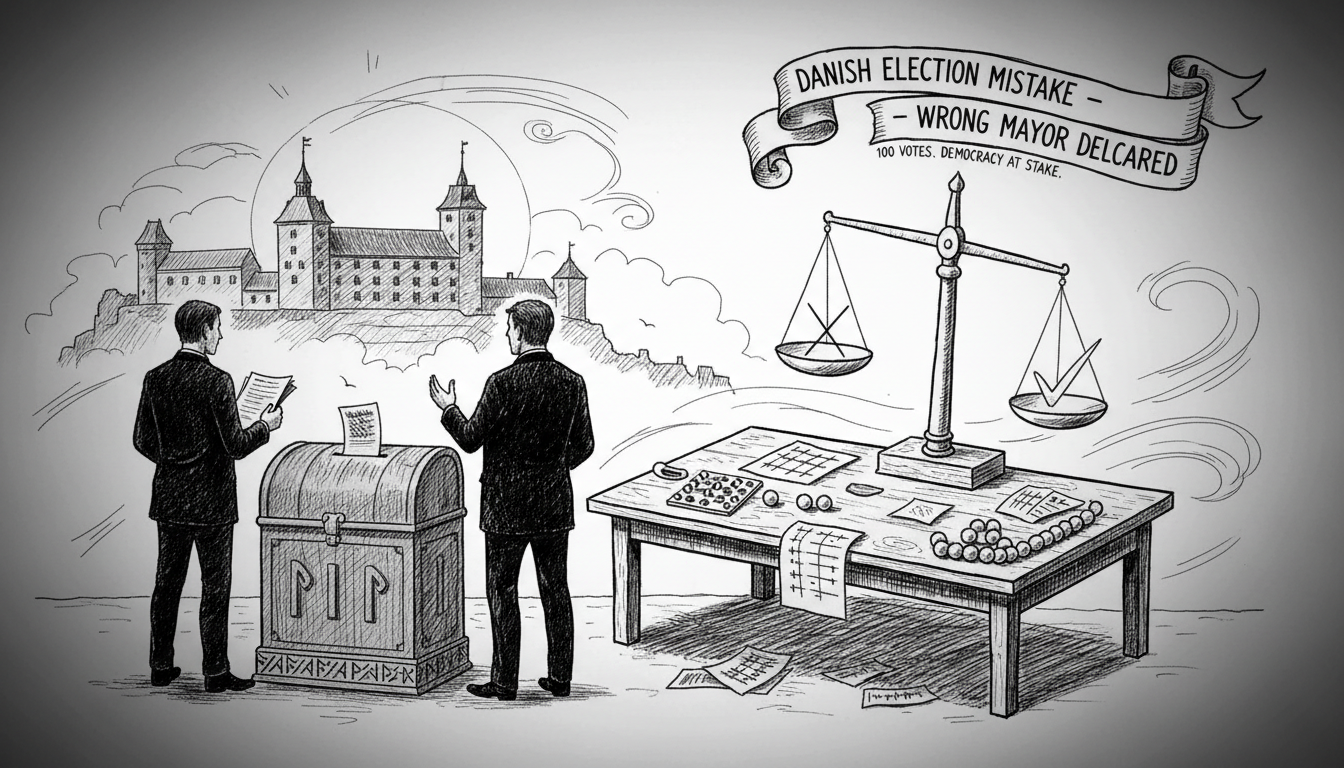A counting error in a Danish municipal election nearly handed victory to the wrong candidate. Social Democrat Thomas Horn initially believed he had defeated Conservative candidate Benedikte Kiær in Helsingør. The mistake involved approximately 100 misallocated votes across the city's twelve electoral districts.
Election officials discovered the error during final verification. Workers at District 5's counting table identified the discrepancy. The correction changed the election outcome completely.
Thomas Horn expressed relief about the discovery. He said the situation would have been much worse if someone had actually won an election based on a mistake. The candidate acknowledged the importance of accurate vote counting in democratic processes.
Danish municipal elections determine local leadership for four-year terms. Mayors oversee city administration and local policy implementation. Helsingør, known internationally for Kronborg Castle, has approximately 47,000 residents.
This incident highlights the vulnerability of manual vote counting systems. Similar errors have occurred in other Nordic countries. Sweden experienced ballot confusion in recent regional elections. Norway implemented digital verification systems after counting discrepancies.
Election observers note that close races magnify the impact of small errors. The Helsingør case involved a margin narrow enough that 100 votes determined the outcome. Such situations test public confidence in electoral integrity.
Danish election authorities have launched a review of counting procedures. They aim to prevent similar incidents in future elections. The process may include additional verification steps and staff training.
International readers should understand that Nordic countries generally maintain high electoral integrity standards. These nations typically score highly on global democracy indexes. Occasional errors receive significant attention precisely because they are rare exceptions.
What happens when election officials discover such mistakes? Danish law requires immediate correction and transparency. The affected candidates receive notification about the revised results. The public gets accurate information as soon as possible.
The Helsingør case ended without lasting controversy. Both candidates accepted the corrected outcome. The incident nevertheless serves as a reminder that no electoral system is completely infallible.
This situation demonstrates why multiple verification layers matter in democratic processes. It also shows how political cultures handle unexpected developments. The calm response reflects broader Nordic trust in institutional processes.

